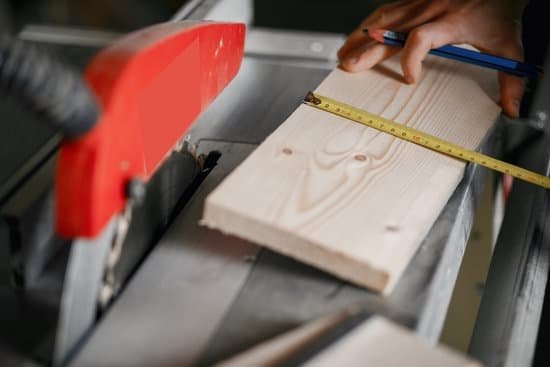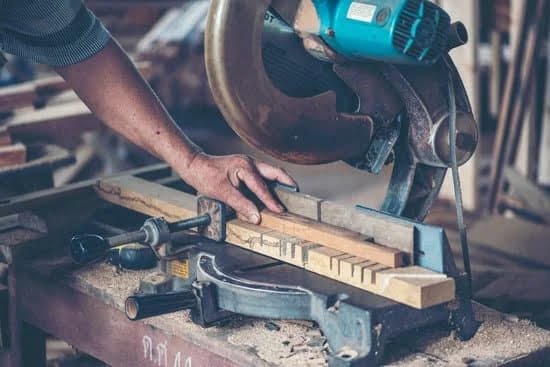Introduction
A woodworking shop is a great way to experience the joy of creating something from natural materials. However, before you start your woodworking journey, it’s important to make sure you have all the necessary tools, materials, and safety equipment. From essential power tools to protective safety glasses, here are some of the must-haves for any woodworking shop.
BASIC POWER TOOLS: A basic set of power tools is essential for any woodworking shop. Some necessary items include a drill, circular saw, jigsaw or adjust-a-saw (for cutting circles), planer and router table. Depending on your project, other specialized power tools may also be needed such as a scroll saw (to make more intricate shapes) or a miter saw (for making precise angle cuts).
HAND TOOLS: In addition to power tools, hand tools are also necessary in any working shop. These can range from things like measuring tapes and squares to chisels and hammers. A good set of clamping devices”clamping vises as well as bar clamps”are extremely important when putting together glued joints or other project components which require holding different pieces in place while drying or curing them in place permanently.
SAFETY EQUIPMENT: When working with machines and raw materials in your shop, having the correct safety clothing and tools is vital for protecting yourself from injury and contamination. Long sleeves with gloves should always be worn when sanding items by hand or using power tools; dust masks can protect against breathing hazardous particles; eye protection goggles should be used when using powerful machinery like drills and circular saws; ear protection should also be worn when cutting noisy materials like metal; and respirators should be used if dealing with very toxic substances like lead paint or specific adhesives that don’t allow natural ventilation over longer periods of time.
WOOD MATERIALS: Finally, one cannot forget about the key ingredient for creating beautiful carpentry projects”wood! Different types of wood offer interesting color variations as well as strength for different applications; fir or pine can often provide economical options for certain projects while hardwoods such as oak will provide more classic grain patterns but usually come at an additional cost.* Be sure to investigate the best option suited to your style before getting started with your next masterpiece!
Safety Must-Haves
When setting up a woodworking shop, safety should be the first priority. Even an experienced carpenter can experience an accident when working with sharp tools and heavy lumber. To avoid serious harm, it is important to create a safe environment that meets all the required safety standards. Below are some of the must-haves for any woodworking shop:
1. Protective Gear: A good pair of work gloves and protective eyewear cannot be overstated as must-haves for woodworking shops – as well as a hard hat if you are working overhead with large pieces of lumber or awkward angles. Hearing protection is also a must, especially if you’re running power tools that generate high noise levels like an air compressor or sawmill. In addition, make sure your shoes are in good condition with non-slip soles and proper ankle support.
2. Respiratory Protection: Houses exposed to sawdust need to be equipped with adequate ventilation systems and dust collection equipment such as vacuum pumps, which will reduce dust particles in the air and allow users to inhale clean air while they work. Additionally, respiratory masks should always be kept on hand in order to protect workers from airborne particles caused by drilling and sanding operations.
3. Fire Extinguishers: Woodworking shops are prone to catching fire because of heat generated from power tools used during manufacturing processes or sparks created by cutting tools while trimming lumber sections. Fire extinguishers specifically designed for Class A fires (combustible materials) can help prevent scorching of raw materials and deadly situations due to fast spreading flames inside the premises. Make sure different extinguishers are available in four different locations inside each room so they’re easy to access whenever required
4. First Aid Kit: It is also recommendable that every woodworking center keeps a first aid kit containing anti-septic wipes, adhesive bandages, gauzes and burn ointment to treat minor incidents resulting from splinters or minor burns from hot surfaces or chemicals used during finish applicacions like varnish or paint finishes
Essential Woodworking Tools
A well-equipped woodworking shop is essential for any woodworker or DIY enthusiast. Having the right tools and materials on hand is key to producing quality projects, while also saving time and money. There are numerous types of tools, many of which you may already own or that can be obtained with modest investments. Below are a few of the must-haves for any successful shop:
1. Table Saw: A versatile and powerful tool, a table saw can help make cuts that would otherwise be impossible with manual saws. It can also save precious time in comparison to other saws.
2. Jointer/Planer: This combination tool is useful for flattening and jointing boards, allowing them to fit together perfectly for a neat finish. Many pieces of furniture also need this machine for their joinery needs.
3. Router: Routers come in several sizes and configurations when it comes to features; more features mean less fussing around with additional jigs and fixtures. Using routers allows intricate shapes to be cut with ease – perfect for creating decorative panels or complex shapes in furniture pieces without doing any extra work with HSS cutters or shaped blades.
4. Benchtop Drill Press: This relatively small machine is quite useful when it comes to creating accurate and clean holes on pieces of wood which may not fit in a stationary drill press due to its size or shape. It is also ideal if you don’t want the bulkiness of a stationary one taking up too much space in your shop area all the time when not in use, making it much easier to store during those down times between projects.
5. Orbital Sander: A good orbital sander makes light work out of sanding large areas, often producing better results than manual sanding methods alone would normally achieve – mainly thanks to its even abrasive action across all surfaces getting a consistent finish from edge-to-edge as well as providing a superior dust collection system as opposed to other hand sanders types that rely less on suction power from vacuums systems connected directly into them being employed frequently in order for maximum efficiency gains from such methods available today at most stores nowadays handyman enthusiasts flock towards stepping up their love affair and education level within the light weight practices related trades..
Optional Woodworking Tools
Having the right tools in your woodworking shop is essential for being able to complete projects quickly and efficiently. For many weekend DIYers on a budget, having the right set of must have tools can be overwhelming and expensive. To help, here are a few optional woodworking tools that you may want to consider getting to save time and money.
Table saw: A table saw provides an excellent investment when creating furniture or cabinetry projects as they allow precision cuts without having to measure every single board. Additionally, having a table saw allows you to make exact miter joints with ease which can be extremely difficult using hand saws – saving you money by not having to purchase pre-made trim pieces.
Router: A router is a powerful tool for making dramatic shapes with great accuracy on all types of woodworking projects from shelves and tables down to small fixtures like door pulls and knobs. Routers come in both hand-held and stationary models so it’s important you make sure you choose one that fits your budget and project requirements.
Sandpaper: Having the right grit sandpaper will ensure smoother surfaces on your finished pieces so it’s important that you invest in good quality sandpaper for any project. For coarse jobs such as removing old finishes, start with 80 or 100-grit paper then progress up to finer grits for achieving smooth finishes before staining or painting your projects.
Clamps: Clamps are indispensable when working with wood because they can securely hold together two objects – saving time compared to nailing them together or needing someone else’s help holding each piece in place while glue sets. Make sure whichever type of clamps you choose fit both the job requirements and size of materials you’re working with for maximum efficiency as some styles work better for certain tasks than others.
Power Tools
Having the right power tools is essential for any woodworking shop. Depending on the nature of your work, you may need a variety of different types. Basic tools include an electric drill, hand saws, jigsaws, circular saws, bandsaws, routers, planers and sanders. Cordless power tools such as batteries and chargers offer convenience if you are working in remote locations or if you don’t have access to an electrical outlet.
In addition to the standard drill and saws, there are also specialty power tools available for cutting and shaping wood: biscuit jointers for joining boards together at right angles; hand planes and belt sanders for smoothing surfaces; spindle shapers for creating detailed profiles on board edges; mortise and tenon jointers that create tongue-and-groove joints; biscuit slot cutters that make grooves into which biscuits ” small pieces of table plywood ” are inserted to reinforce connections. Other handy tools include drills with countersinks for setting screws flush with surfaces; laminate trimmers for cutting plastic laminates; stationary routers mounted in tables with adjustable fences; cordless drills offering the convenience of wireless use outside of retail outlets or shops. Whatever type of woodworking project you’re undertaking, having the right tools – plus any accessories required – will help ensure it is done to a high standard while saving time & effort during construction or workshop tasks.
Organization
Organizing a woodworking shop properly is essential for an orderly and efficient workspace. Care must be taken when deciding what tools to keep in the shop, where to store them, and how to create easy access for any project. One of the first items that should be considered is a tool chest or system for organizing tools. Consider selecting one with plenty of drawers and shelves that can separate categories of tools. Additionally, it’s important to make sure there is enough countertop space so that projects have room to expand during their creation process.
When organizing other supplies like nails, screws, screws, and saw blades they need to be placed in bags, boxes or containers and labeled accordingly. Clear plastic storage bins are great for seeing right away what’s inside and are simple enough to stack together using shelving units or even on shelves above working surfaces. Lastly, don’t forget about supplies like abrasives, stains and varnishes; consider adding a designated area such as a cabinet with clear doors so these products can all stay together in an organized fashion while also serving as additional storage surfaces when needed.
Instructional Resources
One of the most essential must-haves for a woodworking shop is instructional resources. Learning the craft of woodworking from experienced professionals can open up a world of possibilities for those who embrace it. Instructional resources such as books, magazines, DVDs, and classes provide important information about the materials and techniques used in creating beautiful furniture, boxes, and other wooden objects. Aspiring woodworkers should seek out an array of different types of educational materials that focus on every step in the crafting process; from sawing and sanding to finishing and design concepts. This type of knowledge not only ensures that your projects are built properly but also that they look professional. With the right instruction, hobbyists can become experts at woodworking in no time!
Conclusion
Having the right tools, equipment, and materials is crucial for any woodworking shop. With the right preparation and setup, you can ensure that each project you tackle runs smoothly and is of the highest quality. To get started quickly and easily, consider investing in good machinery like a scroll saw and belt sander, along with all the associated safety gear, such as protective eyewear and gloves. You will also need a wide range of hand tools like chisels and hammers to craft intricate details. Keep the workspace organized with tool chests or pegboard to store away tools. Finally, stock up on essential materials like screws, nails, glue, stain, paint and more so that you’re ready for any project anytime. When it comes to setting up your woodworking shop, these are some of the must-haves to help you achieve success.

Hi everyone! I’m a woodworker and blogger, and this is my woodworking blog. In my blog, I share tips and tricks for woodworkers of all skill levels, as well as project ideas that you can try yourself.





